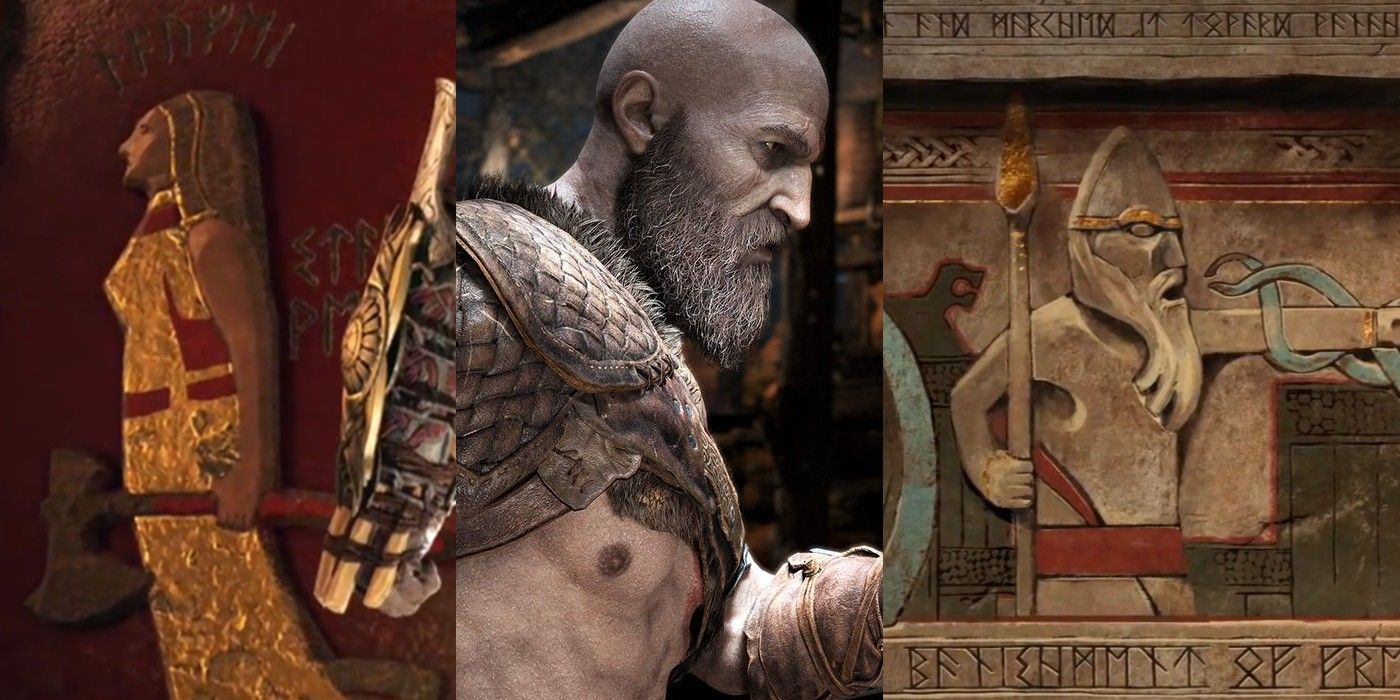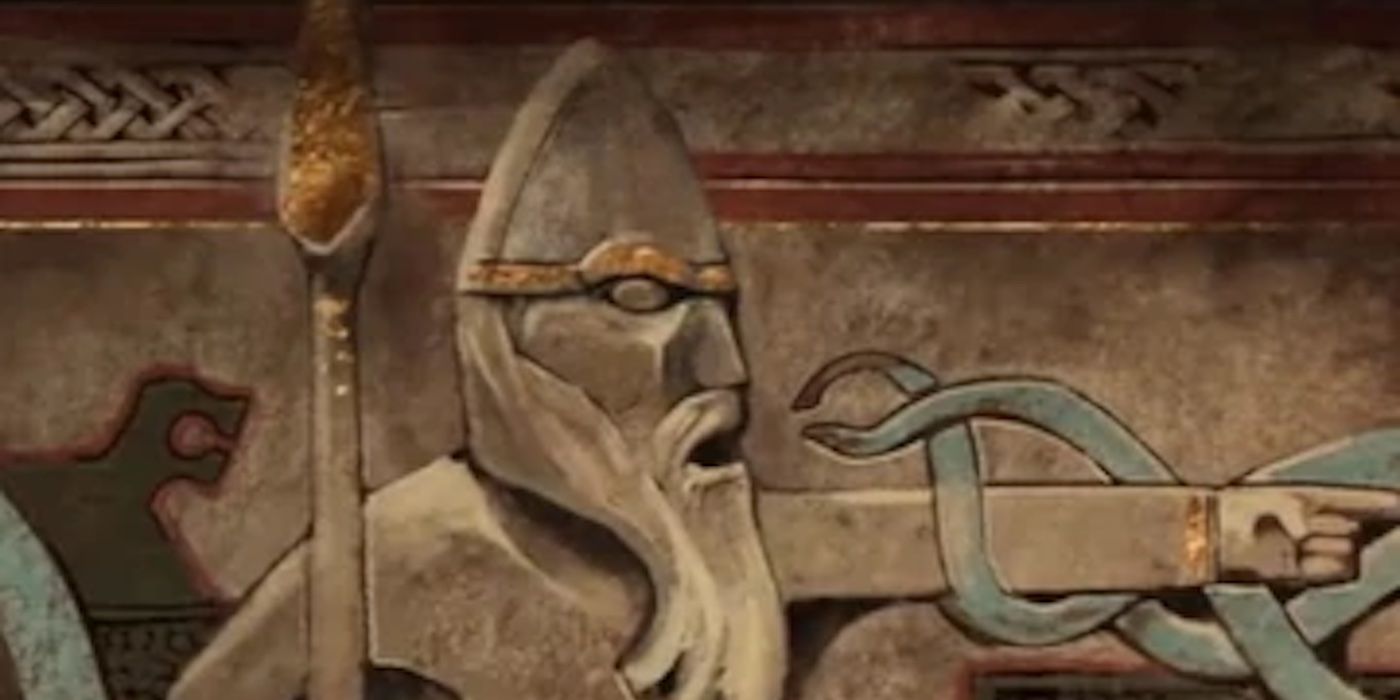PlayStation's 2021 Showcase offered the first look at God of War: Ragnarok, including gameplay and cutscenes of Kratos’ dedication to his son and deceased wife. As was shown in 2018’s God of War, Kratos’ son, Atreus, is destined to kill his father and bring about Ragnarok. Hints towards his identity as Loki have begun to appear, as Atreus expresses frustration at not knowing his destiny or identity. However, the moment Atreus suggests Laufey’s inclination towards war with Asgard, Kratos becomes deathly serious, and for good reason.
Shortly after Kratos traveled to the Norse Pantheon's lands, he met a woman named Faye. Unbeknownst to him, Faye was a legendary warrior from Jotunheim, formerly known as Laufey. Together, Kratos and Faye built a life on Midgard and raised a son named Atreus. Faye later passed away due to unknown circumstances, and her family scattered her ashes across Jotunheim. Though God of War revealed few specifics about Laufey’s story, she shows many similarities to Kratos, which may explain his fierce defense of her honor.
Kratos’ story with God of War's Greek Pantheon is filled with tragedy and bloodshed, leading to the deaths of gods and mortals alike. After the Greek gods captured and tortured his brother to prevent the Pantheon’s doom, Kratos began training to claim vengeance. Zeus’ paranoia and fear caused him to subject his inferiors to horrific calamities. Zeus’ desperation to accrue more power resulted in further atrocities, eventually leading to his death at Kratos' hands. The relationship between Kratos, Zeus, and the Greek Pantheon is quite similar to Laufey's fight against Asgard.
God of War Told The Story Of Laufey’s Rebellions Against Asgard
Most exposition for God of War’s Norse Pantheon comes from Mimir, a decapitated head that used to be one of Odin's advisors. One of the stories he tells details Laufey’s acts of rebellion against the Aesir, helping those they subjected to horrific cruelties. Laufey was a brave and noble Frost Giant, frequently thwarting Asgard’s schemes for the greater good. God of War’s Odin is a paranoid ruler, hoarding magical secrets and weapons to retain power. After acquiring these secrets, Odin would kill those who taught him to prevent future threats. However, he hated no race more than the Frost Giants of Jotunheim, who refused to relinquish their secrets and abilities. After Thor was sent on a mission to kill all Giants, it’s unsurprising Laufey changed her name to Faye and settled down with Kratos.
Kratos’ war against God of War's Greek Pantheon and Laufey’s resistance to the Aesir represent an uphill battle of suppressed populations against cosmic powers. Kratos has seen much death and injustice and has mellowed out since his days in Greek lands. His fierce protection of Laufey likely stems from desperation to prevent history repeating itself with Atreus, and wanting to defend the memory of his wife. Kratos’ past is mired in bloodshed, and Faye is one of his few pure memories. Atreus suggesting Faye’s intention had always been war with Asgard destroys the last sanctuary Kratos holds dear.
The reveal trailer explained little about God of War: Ragnarok’s story, as the franchise has amended various aspects of the mythology it is inspired from. The title has no definite release date, but more information will likely come as 2022 draws nearer.
God of War: Ragnarok is a PlayStation 4 and 5 exclusive and set to release at some point in 2022.


